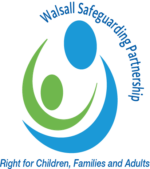Female Genital Mutilation (FGM)
Female genital mutilation is the partial or total removal of the external female genitalia for non-medical reasons. FGM is abuse, it has no health benefits whatsoever and can have terrible and lasting physical, psychological, and emotional consequences. It is estimated that over 200 million girls and women worldwide have undergone FGM.
DORCAS a non-profit organisation has been created to promote and protect the human rights of girls and women who are at risk of abuse; in particular, those who are at risk of or have undergone female genital mutilation (FGM). DORCAS goal is to increase public awareness of FGM, engage with local organisations and partnerships to assist those who are impacted by the practice, and ultimately contribute to the end of this abhorrent crime. DORCAS takes a holistic approach, offering advice and support to help those who have been affected and place their well-being at the front of all our services.
FGM free accredited CPD training course:
This course will provide the learner with valuable cultural insight to the practice of FGM as well as practical knowledge, which can support them in their professional role to protect those at risk of this abhorrent crime. The training is for 1 hour and 30 minutes.
Children and Parent Consultation / Workshop:
The FGM schools program will run alongside each school’s PHSE. It is an important part of the children’s national curriculum learning.
FGM fits within the health and wellbeing core theme.
Highlights of the program will discuss:
- What is FGM
- Possible health implications of FGM
- Prevalence of FGM – Global
- Prevalence of FGM – England
- The law and FGM
- Safeguarding – highlight to pupils the importance of reporting concerns around FGM (for themselves and others) and how to do this.
Together we explore the issue in a sensitive and age-appropriate way helping pupils to: identify myths and facts; engage in group and paired discussion; and recognise how FGM relates to the UN convention on the rights of the Child.
With the increase of FGM, schools throughout England and Wales have been encouraged to report concerns regarding FGM, but there is no strong mandate on raising awareness amongst staff and pupils. We agree that safeguarding children against FGM is important for schools to do, however, the key to reducing FGM in the first place is to educate young people about FGM. Prior to any workshops, a letter is sent out to the parents of children to advise them of the planned FGM lesson. Parents are invited to attend a consultation, with the view of answering any questions they may have, showing them the material that their children will be learning and giving them the opportunity to meet the DORCAS team. The workshops will run for 1 hour.
Children’s Activity Session:
45-minute fun interactive activity session called My Body Belongs to Me, which teaches younger children the importance of their body being protected and safe. The sessions can also be delivered to individual schools.
The aim is to teach children the NSPCC PANTS ‘under wear rule’.
Anticipated outcomes include:
- Aim is to teach children the NSPCC PANTS ethos:
P – Privates are privates
A – Always remember your body belongs to you
N – No means no
T – Talk about secrets that upset you
S – Speak up, someone can help.
- Providing a clear and simple way to open safe conversations in a clear and child-friendly way.
- Children will learn that their privates are private.
- Teaching them that they can always seek help from nursery teachers or carers.
- It teaches them from a young age about respecting their bodies.
- Allows for the seed to be sown about being safeguarded and protected.
- Helps them to understand what harm/abuse is.
- The session will also encourage physical activity that will stimulate both the body and the mind.
- Benefits children’s mental and physical health.
Further information:
https://trustforlondon.org.uk/research/taking-local-action-fgm-essential-guide-local-authorities/
